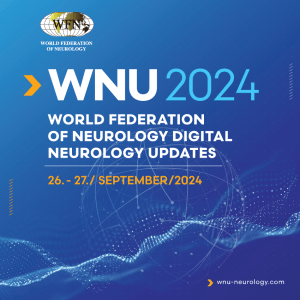Conference organised by UK charity, CMTUK, and sponsored by Dorset Orthopaedic, ShoeFit and Fledglings.
Some of the sessions are summarised below.
Research advances in CMT

This talk was given by Alexander Rossor, a Consultant and Honorary Professor at the UCL Queen Square Institute of Neurology, the National Hospital for Neurology and Neurosurgery and Guys and St Thomas’ NHS Foundation Trust, UK. He provided an overview of CMT and outlined recent advances in genetic diagnosis and treatments.
Professor Rossor talked about the experimental therapies:
CMT1A is the most common type of CMT in the UK and globally. Patients with CMT1A produce too much PMP22 (duplication of chromosome 17p which contains the PMP22 gene). In contrast, patients with Hereditary Neuropathy with Liability to Pressure Palsies (HNPP) have too little PMP22. PXT3003 from Pharnext is a combination of 3 drugs already used in medicine (Naltrexone, Baclofen and Sorbitol) – trials are going on at the moment, which aim to reduce the amount of PMP22 produced. The first trial has been published, suggesting that with the higher dose there may have been improvements. The 2nd trial will hopefully deliver results shortly.
The 2nd therapy is a genetic approach to reducing PMP22: Gene silencing therapy for CMT1A using synthetic DNA or RNA molecules to remove mRNA coding for PMP22. This approach is effective in cells however it is not easy to get synthetic DNA into a nerve cell. It is a little way off before this can be delivered for human use.
For treating types of CMT where there isn’t enough of a protein (ie recessive or X-linked CMT), a genetic approach would be looking to deliver DNA/RNA to nerves to produce proteins. However, similar to gene silencing approaches, it is difficult to get into the nerve cell.
Small molecules (tablets) for CMT – CMT2A is due to mutations in the gene mitofusin 2 (MFN2) which is expressed in mitochondria. In CMT2A, mitochondria cannot join together properly. A group in the US ‘Mitochondria in Motion Inc’ have created a small molecule drug with easier delivery. The company will be taking this into trial, but it is not quite ready yet.
Hereditary Sensory Neuropathy Serine Trial (SENSE trial) – this is a trial to start with Professor Reilly and Professor Matilde Laura, which will start recruiting in the next few months. It is a 12 months double blind randomised controlled trial of L-serine in patients with HSN1 due to mutations in the SPTLC1 gene.
Finally, UCL has started to develop a UK-wide CMT database, funded by CMTUK, which will be launched soon. This is a registry for individuals with CMT in the UK, for children and adults, and whether they have seen a neurologist for their CMT.
CMT research update
Richard Batchelor gave an update from CMTUK’s research committee.

The CMTUK Research Committee funded a project to apply artificial intelligence to images from a CT scanner, which enabled foot surgeons to improve their planning and performance of operations to improve patient outcome.
CMTUK has made a grant to the development of a national patient registry for CMT with Dr Alexander Rossor and Professor Mary Reilly.
Cleary Simpson, CEO of the CMT Research Foundation, introduced the work of the foundation. The CMTRF has one single focus: to deliver treatments and cures for CMT.
The CMTRF research priorities are: advancing gene therapy; promoting nerve health; overcoming the delivery challenge; de-risking clinical trials. Over the last 5 years, 19 projects have been funded. One of the completed projects was with DTx Pharma, a company with a proprietary technology platform to address the delivery challenge of gene therapies. DTx designed a project for CMT1A with an initial investment from CMTRF. Early results in cell and animal models were promising: DTx earned an NIH grant and subsequently raised more than $100mm in private funding. DTx plans to be in clinical trials for CMT1A with their FALCON sIRNA therapeutic – DTx-1252 – in the next 12 months.
Dr Katherine Forsey, Chief Research Officer at CMTA explained that CMTA is the largest global CMT dedicated Patient Advocacy Group (PAG). Their research goal is to develop treatments for CMT via its STAR system (Strategy to Accelerate Research) – $23.5M has been invested since 2008. CMTA is currently supporting over 50 active research studies. It is also currently funding genetic therapy approaches, small molecule testing and gene discovery efforts, as well as clinical trial readiness and biomarkers. CMTA is currently funding Professor Mary Reilly’s ‘SENSE’ trial for patients in the UK. CMTA also provides Alliance Partner Support Services as a pre-clinical testing group, working with different organisations. CMTA’s Patients as Partners in Research goal is to enrol the patient community in the critical work to further the development of treatments, and ultimately a cure, for CMT. Over 6000 patient profiles have been created to date, with over 20 studies supported.
Allison Moore is CEO and Founder of Hereditary Neurology Foundation. Allison talked about HNF’s mission to increase awareness and accurate diagnosis of CMT and related inherited neuropathies; support people living with CMT and their families with critical information to improve quality of life; and fund research that will lead to treatments and cures. HNF created ‘TRIAD’, Therapeutic Research in Accelerated Discovery, a patient-led collaborative network with academia, government and industry, developing treatments for CMT. HNF also created the Global Registry for Inherited Neuropathies (GRIN) to collect patient data to help improve clinical outcomes and learn how they can measure the impact on patients’ lives. HNF is also supporting pre-clinical research into CMT4A gene therapy development including behavioural studies in rats.
Future CMTUK conferences and events can be found on the news section of CMTUK’s website.

